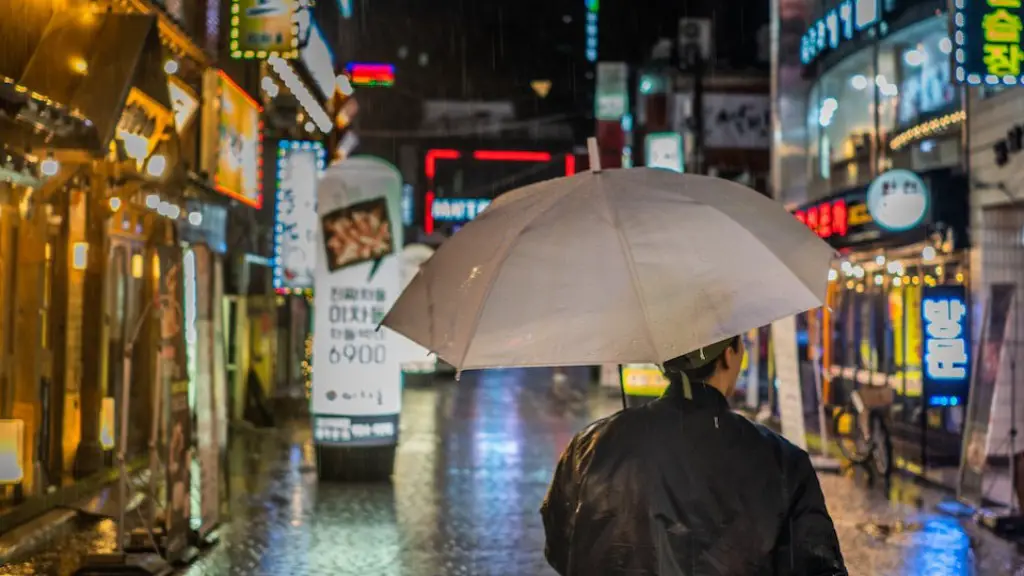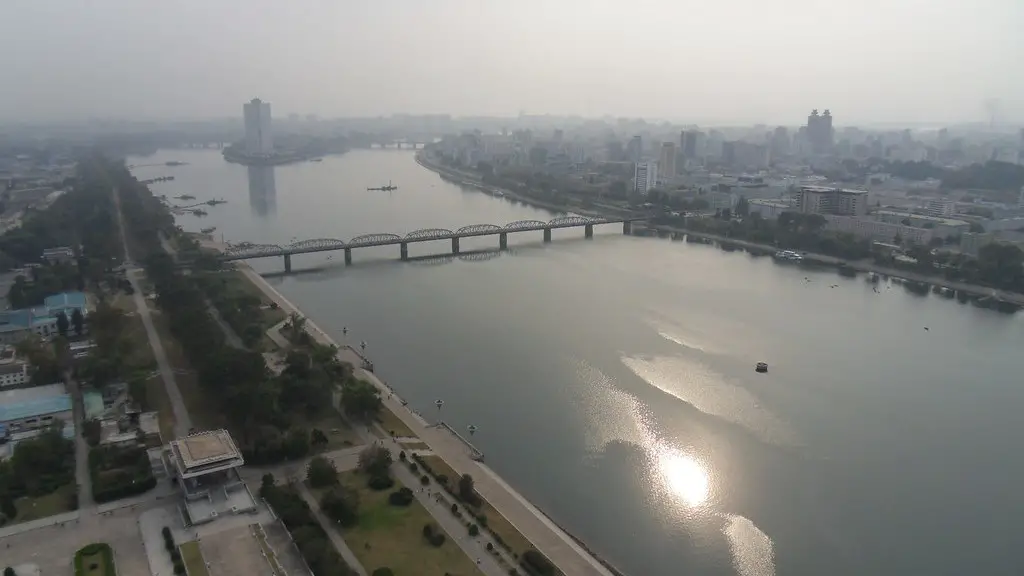Introduction
Vision loss and blindness are profound health issues throughout the world, but they are particularly prevalent in North Korea. In this article, we will explore the reasons why so many people go blind in North Korea, and look at the facts, figures and perspectives from experts. We will also examine the impact of this crisis and offer our own insights and analysis on the matter.
The Causes of Blindness in North Korea
There are a few reasons why so many people in North Korea suffer from vision loss and blindness. The most immediate cause is malnutrition, as a significant part of the population are malnourished. This can cause vitamin deficiencies which can produce vision problems, especially in malnourished children. Additionally, the economic sanctions against North Korea have created difficulty in securing medical supplies, meaning the population often lack access to basic treatments for common eye diseases.
Furthermore, another major cause of vision loss in North Korea is the prevalence of untreated conditions. Common eye diseases such as glaucoma, cataracts, and trachoma often remain untreated due to a lack of access to ophthalmologists or eye care facilities. According to the World Health Organization, North Korea has only 40 ophthalmologists, meaning that obtaining care is a challenge for many North Koreans.
The Impact of Blindness in North Korea
The high incidences of vision loss and blindness in North Korea have a devastating toll on the quality of life of those affected. Blindness limits a person’s ability to navigate their environment, obtain a job, and more. This is especially true in rural areas where there is often no accessible medical care and few resources.
The economic toll of blindness is also significant as the cost of healthcare for those affected can be quite high. For example, cataract surgery can cost hundreds of dollars, an amount that is especially prohibitive for North Koreans. In addition, the social implications of blindness can be devastating as those affected are often not only excluded from the workplace but also from their families and communities.
The Solutions Being Pursued
To alleviate the impact of widespread blindness in North Korea, various aid groups have developed initiatives. One example is a program from World Vision, a Christian aid organization, which seeks to provide both medical care and support for the blind and visually impaired.
World Vision’s program focuses on providing access to quality eye care and assistance for those already suffering. They also work to improve literacy outcomes for the visually impaired, as well as providing training for employment opportunities.
In addition to World Vision, the North Korean government has also taken steps to support its visually impaired citizens. For example, they have created a program that allows blind citizens to receive funds in exchange for manual labor. This program encourages visually impaired citizens to gain an income and acquire the resources they need to support themselves.
Our Analysis and Insights
The sight of the visually impaired in North Korea is a heartbreaking situation, but one that remains largely out of the public eye. It is essential that awareness of this issue and help is provided to those affected. While initiatives such as those from World Vision can alleviate some of the suffering, North Korea remains largely reliant on external aid and resources to help its most vulnerable citizens.
Perhaps one of the most difficult aspects of this situation is the fact that it is so entrenched and difficult to address. Widespread poverty, economic sanctions, and a lack of access to basic medical care can make finding a solution more challenging. We must continue to pressure policymakers and seek to provide further resources to help those affected by this crisis.
Shortage of Facilities
Another factor in the growth of blind people in North Korea is the lack of facilities and experts who are capable of providing services and treatments. With only 40 ophthalmologists for the entire nation, it is unsurprising that many cases of serious eye disorders go undetected and untreated. This, in turn, develops into serious vision loss or even blindness.
Moreover, North Korea lacks the necessary technology and infrastructure to identify vision problems in a timely manner. This includes the availability of optometry services, eye clinics and adequate equipment. Poor sanitation and hygiene further increases the chances of eye infections, leading to a greater loss of sight.
Excessive Alcohol and Tobacco Use
Alcohol and tobacco use is another problem in North Korea, with a significant portion of the population dependent on alcohol and cigarettes. Tobacco smoke, when inhaled over a prolonged period of time, does cause damage to the eye’s retina and lens, leading to vision loss. In addition, the excessive consumption of alcohol has a destructive impact on the liver and other vital organs. This can decrease the body’s ability to absorb essential nutrients which are responsible for maintaining healthy vision.
Radiation Exposure
Finally, a significant number of people have been affected by radiation exposure due to the numerous nuclear tests carried out by the North Korean government. Radiation exposure is known to cause extensive damage to the eyes, leading to vision loss and blindness for those exposed to it. This is an especially critical concern for people living in close proximity to the test sites.
Conclusion
The issue of blindness in North Korea is a complex one, but one that requires attention and action. It is clear that a multi-faceted approach is necessary to address the causes of vision loss in North Korea, especially considering the political and economic situation. We must continue to seek solutions and work together to find ways to help those affected.


